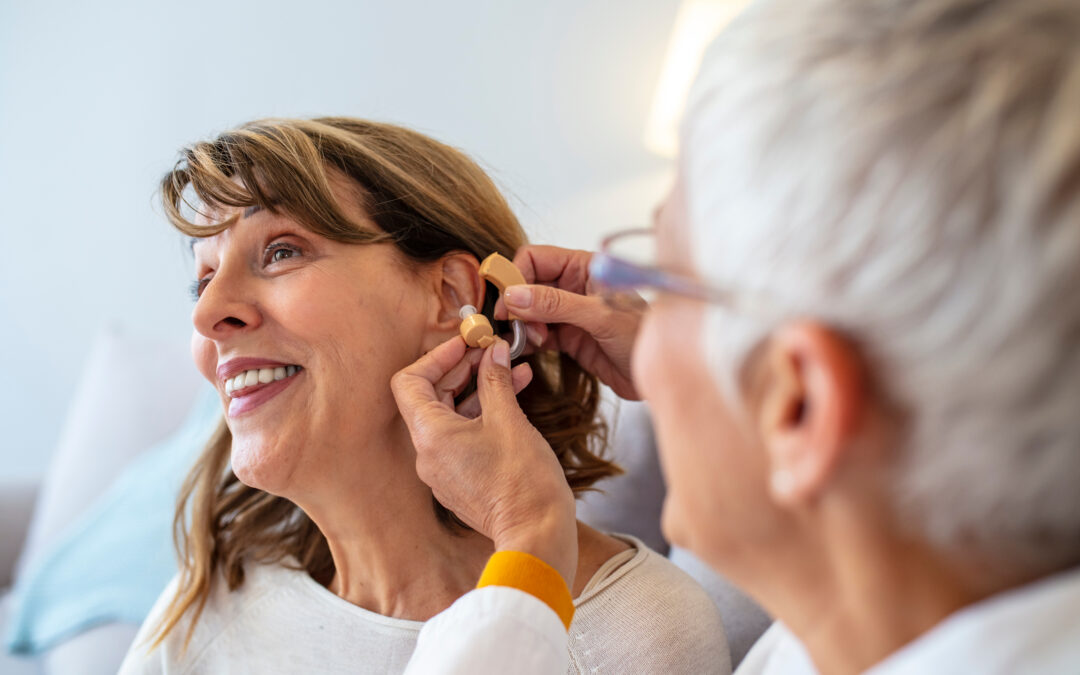Have you heard? Today is World Hearing Day. This annual awareness campaign, led by the World
Health Organization, highlights the importance of protecting your hearing and recognizing early signs
of hearing loss. It’s the perfect time to talk about ear health and why protecting your hearing matters
for seniors. According to Johns Hopkins Medicine, about 1 in 3 adults between 65 and 74
experience some form of hearing loss. But because symptoms appear gradually, many seniors don’t
realize the changes right away.
That’s why, in honor of World Hearing Day, the Seniors Helping Seniors® team has put together a
simple guide to help you spot potential hearing issues. Whether you’re experiencing changes
yourself or noticing differences in a loved one, being informed allows you to seek the right support
sooner. Keep reading to learn the key signs of hearing loss and find out how to stay proactive about
ear health!
Keep Your Ears Perked for These Hearing Loss Symptoms
Age-related hearing loss, also known as presbycusis, is a gradual decline in hearing that occurs as
we age. It’s one of the most common conditions affecting older adults, often caused by natural
changes in the inner ear, prolonged exposure to noise, genetics, or health conditions like high blood
pressure and diabetes. Because the changes happen slowly, many seniors don’t realize their
hearing is declining until it starts affecting daily life.
So, what should you watch for? Here’s what to look out for when it comes to hearing loss in yourself
or a loved one.
Difficulty Understanding Conversations
Do voices sound muffled, or do people seem to be mumbling more than they used to? Struggling to
follow conversations, especially in noisy places like restaurants or family gatherings, is an early
indicator of hearing loss. If you’re missing words or struggling in loud environments, it could be time
to check your hearing.
Repeatedly Asking People to Repeat Themselves
“Could you say that again?” If you find yourself asking this question in conversations more often,
take it as a sign to check in on your ears. While the change happens slowly, you may notice it more
in group settings or when someone is speaking softly.
Trouble Hearing on the Phone
If voices sound faint even with the volume up, it might not be a bad connection—it could be a
problem with your ears. Hearing loss often makes it harder to pick up on high-pitched sounds, like
the clarity in voices over the phone. This can lead to frustration, missed details, or avoiding phone
calls altogether.
Needing to Turn the TV/Radio Up Excessively
Turning the volume way up but still missing parts of the show? Many seniors with hearing loss find
themselves increasing the volume on their devices to hear more clearly. If others complain that it’s
too loud while it still sounds normal to you, it could be time to explore hearing support options.
Hearing loss impacts more than just your ears. It affects your ability to connect with loved ones,
enjoy your favorite activities, and maintain independence. By recognizing the early signs of hearing
loss and taking proactive steps, you can protect your hearing and get help early. The Seniors
Helping Seniors® team wants every senior to live independently and joyfully, and we’re here to help
make that happen. If you or a loved one need extra support, our caregivers are always here to lend
a hand!

